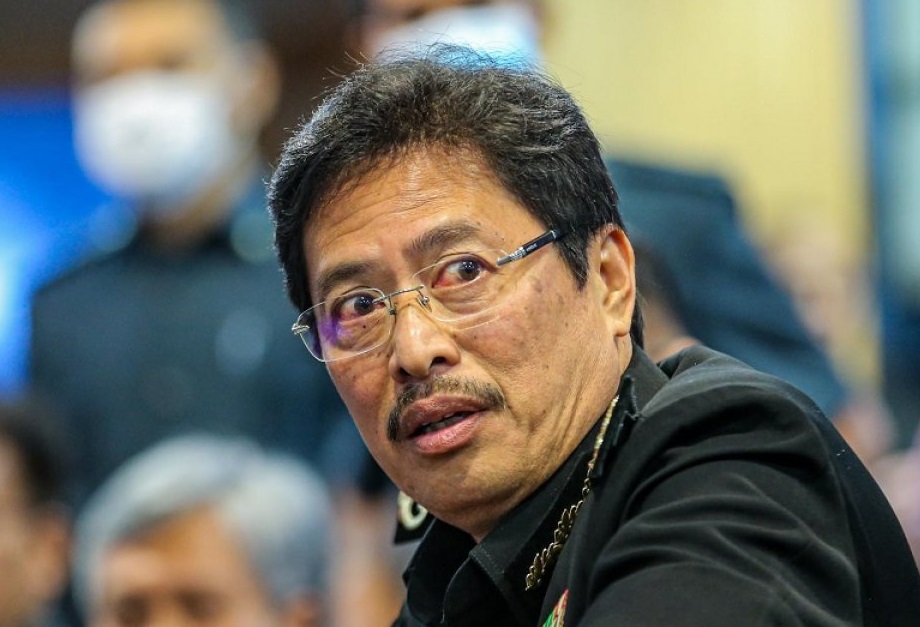
Source Global Times
BEIJING, China--After weaponizing the global financial and trade system in its frenzied economic sanctions against Russia, Washington now appears to be seeking to use another crucial multilateral platform to promote its reckless, dangerous anti-Russia mania.
Ahead of the upcoming G20 summit later this year in Indonesia, several media reports indicated on Tuesday that the US was rallying its Western allies to potentially kick Russia out of the grouping of the world's 20 major economies.
Last week, some media reports also cited Polish officials as suggesting that Poland should replace Russia as a member of the G20.
In a defiant move, Russian Ambassador to Indonesia Lyudmila Vorobieva said on Wednesday that President Vladimir Putin of Russia intends to attend the G20 summit later this year, according to Reuters.
First and foremost, Washington's absurd move has little chance of succeeding. Any attempt to exclude a member could be vetoed by other G20 members.
In a defiant move, Russian Ambassador to Indonesia Lyudmila Vorobieva said on Wednesday that President Vladimir Putin of Russia intends to attend the G20 summit later this year, according to Reuters.
First and foremost, Washington's absurd move has little chance of succeeding. Any attempt to exclude a member could be vetoed by other G20 members.
Though the G20 includes US allies that have closely followed Washington in slapping sanctions against Russia, many G20 countries have thus far resisted US pressuring and blackmailing, including China, India and others.
China on Wednesday expressed opposition to the US attempt. "Russia is an important member of the G20, and no member has the right to expel other countries," Wang Wenbin, a spokesperson for the Chinese Foreign Ministry, told a press briefing.
China on Wednesday expressed opposition to the US attempt. "Russia is an important member of the G20, and no member has the right to expel other countries," Wang Wenbin, a spokesperson for the Chinese Foreign Ministry, told a press briefing.
Wang further said that the G20 should focus on unity and cooperation in dealing with significant challenges in global economic, financial and sustainable development.
Last week, officials in Indonesia, which holds the presidency of the G20 this year, made it clear that the G20 was a mechanism for multilateral economic cooperation and the Ukraine crisis will not be included in the agenda for the summit.
Last week, officials in Indonesia, which holds the presidency of the G20 this year, made it clear that the G20 was a mechanism for multilateral economic cooperation and the Ukraine crisis will not be included in the agenda for the summit.
Under the theme of "Recover together, Recover stronger," Indonesia has proposed that the summit will focus on economic recovery from the COVID-19 pandemic.
Though it has faced no shortage of challenges and disruptions over the years, the G20 has become a crucial multilateral platform for the world's major economic powers to coordinate everything from economic policies to climate change actions.
Though it has faced no shortage of challenges and disruptions over the years, the G20 has become a crucial multilateral platform for the world's major economic powers to coordinate everything from economic policies to climate change actions.
The G20 has also played a positive role in the global response to the COVID-19 pandemic, though it has clearly fallen short of what it can do to help the world combat the virus.
Since the outbreak of the COVID-19 pandemic, the G20 has established the Debt Service Suspension Initiative to help developing countries concentrate their resources on fighting the pandemic.
Since the outbreak of the COVID-19 pandemic, the G20 has established the Debt Service Suspension Initiative to help developing countries concentrate their resources on fighting the pandemic.
From May 2020 to December 2021, the initiative suspended $12.9 billion in debt-service payments owed by participating countries to their creditors, according to the World Bank.
The G20 countries have also helped launch the COVID-19 Vaccine Global Access, or COVAX, facility to lead the global effort to distribute vaccines. So far, the facility has raised $11 billion in total, well short of the $18 billion it initially said it needs, and global public health leaders are urging the G20 to do more.
Currently, while global attention has been focused on the Russia-Ukraine conflict, other global challenges remain acute, including the lingering pandemic, a slow and uneven recovery from the pandemic, disrupted global supply chains and growing geopolitical tensions.
The G20 countries have also helped launch the COVID-19 Vaccine Global Access, or COVAX, facility to lead the global effort to distribute vaccines. So far, the facility has raised $11 billion in total, well short of the $18 billion it initially said it needs, and global public health leaders are urging the G20 to do more.
Currently, while global attention has been focused on the Russia-Ukraine conflict, other global challenges remain acute, including the lingering pandemic, a slow and uneven recovery from the pandemic, disrupted global supply chains and growing geopolitical tensions.
All of these challenges require the G20 countries to take the lead in coordinating efforts to address them.
Unfortunately, Washington's attempt to use the platform to promote its anti-Russia mania will undermine meaningful discussions at the upcoming G20 summit, even though it will inevitably fail to expel Russia from the grouping.
Unfortunately, Washington's attempt to use the platform to promote its anti-Russia mania will undermine meaningful discussions at the upcoming G20 summit, even though it will inevitably fail to expel Russia from the grouping.
By making public its "discussions" about excluding Russia, US officials are essentially trying to hijack the summit and replace the summit's development-focused agenda with its own sinister geopolitical agenda.
The selfishness and viciousness behind such an attempt is truly appalling, but sadly it is not surprising. The US has a long track record of trampling over multilateralism by injecting its toxic domestic politics and selfish geopolitical agenda above the interests of the entire international community.
Over the past several years, under an "America First" agenda, Washington has constantly disregarded the UN Charter, paralyzed the WTO's Appellate Body, imposed countless unilateral sanctions on a host of countries, including its own allies, tore up multilateral trade and other agreements, and withdrew from crucial global initiatives to combat climate change and other issues.
This shameless protectionist agenda was first launched by Donald Trump, but has continued and even been exacerbated under incumbent Joe Biden.
The selfishness and viciousness behind such an attempt is truly appalling, but sadly it is not surprising. The US has a long track record of trampling over multilateralism by injecting its toxic domestic politics and selfish geopolitical agenda above the interests of the entire international community.
Over the past several years, under an "America First" agenda, Washington has constantly disregarded the UN Charter, paralyzed the WTO's Appellate Body, imposed countless unilateral sanctions on a host of countries, including its own allies, tore up multilateral trade and other agreements, and withdrew from crucial global initiatives to combat climate change and other issues.
This shameless protectionist agenda was first launched by Donald Trump, but has continued and even been exacerbated under incumbent Joe Biden.
Despite his declaration that "America is Back" on the global stage, Biden has done nothing to repair the damage the US has caused on the global multilateral system and instead has become even worse in terms of undermining global multilateralism.
The US' frenzied unilateral sanctions against Russia over the past several weeks offered sufficient proof for that.
For now, Washington appears to face little pushback in its constant attack on multilateralism, with some of its allies even indulging and aiding in that.
For now, Washington appears to face little pushback in its constant attack on multilateralism, with some of its allies even indulging and aiding in that.
But for the broader international community, the US' selfish and dangerous behaviors cannot be left unchecked, or there will be more serious, irreparable damages for the multilateral system that has benefited all.








0 Comments
LEAVE A REPLY
Your email address will not be published